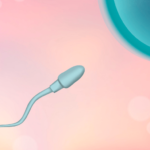- Introduction
- What is miscarriage?
- How often do miscarriages occur?
- What is a high-risk pregnancy?
- What is NIPT (New Prenatal Testing)?
- What causes miscarriage?
- Types of miscarriage
- What are the symptoms of miscarriage?
- How to prevent miscarriage?
- What is the diagnosis and treatment for miscarriage?
- What should I be careful about after miscarriage?
- Conclusion
Introduction
When a pregnant woman discovers that she is pregnant, she is happy, but at the same time, there are various concerns. I think one of them is the fear of miscarriage. Let’s take a look at the causes of miscarriage.
What is miscarriage?
Miscarriage is the death of a baby before 22 weeks of pregnancy for any reason. The death of a baby after 22 weeks of pregnancy is called a stillbirth.
How often do miscarriages occur?
Miscarriage occurs in 15-20% of pregnancies. In addition, miscarriage may occur without even realizing that you are pregnant. Approximately 85% of miscarriages occur before the 12th week of pregnancy.
It is said that one in six women has experienced a miscarriage, and many women have experienced it.
Miscarriage is said to be one of the diseases that women with high-risk pregnancies are more likely to experience.
What is a high-risk pregnancy?
- Young and old childbirth
- Physical characteristics such as short stature and obesity
- Social characteristics (marital status, special occupation, etc.)
- Problems with past pregnancies (miscarriage, stillbirth, presence of illness during pregnancy)
- Illness that existed before pregnancy
- Illness that occurred during pregnancy
- Exposure to harmful substances, drugs during pregnancy
What is NIPT (New Prenatal Testing)?
NIPT (New Prenatal Testing) refers to non-invasive prenatal genetic testing.
By collecting blood from the mother between the 10th and 16th week of pregnancy, it is possible to check for chromosomal abnormalities in the baby. This is an optional test for pregnant women who have experienced childbirth, miscarriage, or stillbirth, or pregnant women who have not experienced childbirth, miscarriage, or stillbirth but are concerned about the condition of their baby.
What causes miscarriage?
Most miscarriages that occur before approximately 11 weeks of pregnancy are due to causes within the baby, genetic disorders, or congenital abnormalities. Therefore, in most cases, the moment of fertilization determines whether there will be a miscarriage or not. In early miscarriages, you may not be aware that you are pregnant and it is not due to drinking, smoking, taking medicine, work, or exercise.
It is also said that mental shock and minor injuries (slips, falls, etc.), which are often feared, have nothing to do with miscarriage.
The causes of most miscarriages after 12 weeks are not yet clearly understood by current medical science, but the problems faced by the mother are as follows.
- Uterine structural abnormalities (uterine fibroids, duplicate uterus, cervical incompetence)
- Drinking, smoking, drugs, drugs such as cocaine
- severe injury
- Infectious diseases (cytomegalovirus, rubella, etc.)
- Severe thyroid dysfunction
- severe diabetes
- Untreated chronic kidney disease, systemic lupus erythematosus, hypertension, etc.
- RH blood type incompatibility (maternal Rh-, fetal Rh+)
People who have had a miscarriage are more likely to have a second miscarriage. Additionally, the higher the number of miscarriages, the higher the risk of another miscarriage, and if you have repeated miscarriages, you may be suffering from infertility, so early testing and treatment are necessary.
* Infertility is when a woman is able to get pregnant but the baby is unable to grow, resulting in repeated miscarriages, stillbirths, and premature births.

Types of miscarriage
There are different types and names for miscarriage. I will explain the terms below.
spontaneous miscarriage
All miscarriages that occur not due to human factors.
artificial miscarriage
“Artificial abortion”. Surgery performed by a doctor designated by the Maternal Protection Act for the purpose of maternal protection
threatened miscarriage
By the 20th week of pregnancy, the cervix has not dilated, causing bleeding and cramping pain, and there is a risk of losing the baby.
advanced miscarriage
By the 20th week of pregnancy, there is bleeding and convulsive pain, the cervix (cervix) dilates, and the uterine contents begin to drain spontaneously along with bleeding and abdominal pain.
complete miscarriage
A condition in which the baby and placenta have completely passed out of the uterus.
incomplete miscarriage
A condition in which only part of the baby’s placenta is exposed outside the uterus. A condition in which a small blood clot remains in the uterus.
Miscarriage
The baby has passed away, but there are no symptoms such as bleeding or abdominal pain. This will be confirmed for the first time at a medical institution.
infection miscarriage
A miscarriage caused by bacterial infection in the uterus.
recurrent miscarriage
Two repeated miscarriages.
habitual miscarriage
This is when you have had three or more miscarriages.
chemical pregnancy
A miscarriage occurring very early in pregnancy. This means that a urine test or blood test shows a pregnancy response, but an ultrasound test cannot confirm pregnancy. Since commercially available pregnancy tests have become widely used, it is said that if you do not take a test for the condition that has come to be noticed, many people will think that it is normal menstruation.
What are the symptoms of miscarriage?
Before a miscarriage, there may be light or obvious blood that is bright or dark red, the uterus contracts, and cramp-like pain in the abdomen occurs. As the pregnancy progresses, abdominal pain becomes more severe and the amount of bleeding increases.
Even if the baby dies in the womb, it may not cause abdominal pain or bleeding. In that case, you can wait for it to be expelled naturally, but it may be removed surgically because it may cause infection from the tissue inside the uterus.
Bleeding and abdominal pain during early pregnancy can occur even in normal pregnancies. Therefore, it can be difficult to judge by yourself whether it is a miscarriage or a normal condition based on the symptoms alone. If you experience a small amount of bleeding or mild abdominal pain, it is a good idea to consult your doctor at your next checkup. However, if there is a lot of bleeding or severe abdominal pain, there is a risk of ectopic pregnancy (pregnancy outside the uterus), so it is necessary to visit a medical institution at night or even after hours.
How to prevent miscarriage?
Miscarriages up to the 11th week of pregnancy are caused by genetic disorders or congenital abnormalities in the baby. Therefore, it can be said that prevention of early miscarriage is extremely difficult.
However, there are things you can do before trying to get pregnant. Please stop smoking, complete vaccinations against rubella, measles, etc., and be sure to see a doctor and receive treatment if you have an underlying disease. Mothers need to be physically and mentally healthy to welcome their baby. It is best to abstain from drinking in a stress-free manner.
What is the diagnosis and treatment for miscarriage?
Diagnosis of miscarriage is made by pelvic examination, ultrasound examination, and blood tests.
If the cervix is dilated before 20 weeks of pregnancy, miscarriage is inevitable.
It is said that there is currently no preventive medicine for threatened miscarriage up to 12 weeks of pregnancy.
There are reports that refraining from exercise, resting as much as possible, and refraining from sexual intercourse are effective for threatened miscarriage, but there is no clear scientific basis for this. Regarding movement restrictions, you must follow your doctor’s instructions and receive regular medical examinations.
No treatment is required for complete or chemical miscarriages.
In the case of a missed miscarriage or incomplete miscarriage, if you have a fever or are not in a bad physical condition, wait for the bleeding to occur naturally. If it does not come out naturally, surgical treatment or drugs to induce labor may be used.
In the case of an infected miscarriage, the fetus and placenta should be removed as soon as possible and antibiotic injections should be given.
In the case of repeated miscarriages or habitual miscarriages, the baby may not grow in the uterus for some reason. You may need to consult with your doctor and see an infertility specialist for treatment.

What should I be careful about after miscarriage?
Women who have experienced a miscarriage are more likely to experience feelings of anger, guilt, and anxiety about their next pregnancy due to changes in their hormonal balance and the sadness of losing their baby.
Feeling the loss of losing a baby is a natural reaction. Instead of suppressing or denying these feelings, you need to talk about your feelings with someone or shed tears and grieve to sort out your feelings. Although a mother may feel guilty that it was her fault that her baby miscarried, she needs to know that miscarriages before 11 weeks of pregnancy are almost never caused by the mother. If you are concerned about your next pregnancy, please consult your doctor and get tested if necessary. Although miscarriage increases the risk of miscarriage in your next pregnancy, it is important to know that most women are able to become pregnant again and continue their pregnancy.
Conclusion
For women who have experienced miscarriage, it is no exaggeration to say that miscarriage is one of the most painful things in life.
Get the right knowledge, eliminate various concerns caused by pregnancy, and enjoy a better maternity life.
Article Editorial Supervisor

岡 博史先生
【役職】
【資格】
【略歴】
【所属】
【SNS】
 中文
中文

















